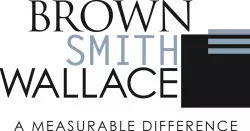Note to readers: As of this writing, efforts are underway in Washington to repeal the Affordable Care Act. Both the Republican-majority House and Senate have approved a resolution to begin repeal proceedings, while President Trump has issued an Executive Order calling for the law's "prompt repeal." Please bear this in mind as you read the article below, and consult your benefits advisor for the latest developments.
Employers use Form 5500 to file an employee benefit plan's annual information return with the Department of Labor (DOL). For months now, this critical document has been subject to a variety of proposed changes. In July 2016, there was a sweeping proposal issued jointly by the DOL, IRS and Pension Benefit Guaranty Corporation.
According to the DOL, the purpose of the proposed changes is to bring reporting into compliance with the Affordable Care Act. However, critics believe the agencies went overboard. The DOL under the new presidential administration will likely scale back the changes — perhaps even pushing back the effective date beyond the 2019 plan year. Nonetheless, employers should stay informed about what may lie ahead for Form 5500.
Industry Warnings
The DOL has broadly explained its proposal by stating that the revisions "remedy the current failure to collect data about a large sector of group health plans ... to provide critical data for [government] oversight and collect information needed for congressionally-mandated reports on group health plans." But industry groups aren't so sure.
For example, the Society for Human Resource Management (SHRM) raised red flags regarding one of the proposal's most notable revisions: doing away with the exemption that employers with fewer than 100 employees may claim from filing the form for their health plans. Dropping this small plan exemption, as well as implementing many other changes, would expand compliance burdens to the point of persuading some employers "to discontinue their sponsorship of their already existing plans," SHRM warned.
Similarly, the American Benefits Council (ABC) complained that the changes would "increase the cost of operating employee benefit plans and reduce the appeal of plan sponsorship." The ABC urged the DOL simply to scrub its proposal and start over based on its comments and those of other industry representatives.
Schedule J Concerns
In addition to requiring all employers to file a Form 5500 for their health plans, the proposal would eliminate Schedule I and replace it with a new Schedule J. Fully insured health plans wouldn't have to answer as many questions as self-insured plans. Still, the new Schedule J is replete with operational uncertainties. SHRM compiled the following list of 12 key areas of inquiry regarding how the schedule would address:
- The number of individuals offered and receiving COBRA coverage
- Whether the plan offers coverage for employees, spouses, children and retirees
- The nature of the plan's funding and benefits arrangements (that is, whether the benefits are insured or paid through a trust or from the general assets of the employer)
- The type of group benefits offered under the plan
- Information regarding participant and employer contributions
- The grandfathered status of the plan and whether the plan includes a high deductible health plan, a health Flexible Spending Account or a Health Reimbursement Arrangement
- Information regarding the existence and utility of rebates, refunds or reimbursements from service providers (such as a medical loss ratio rebate or offset rebates from favorable claims experience)
- The identity of any service provider to the plan not already reported on Schedules A or C (such as third-party administrator / claims processors, mental health benefits managers, wellness program managers, substance use disorder benefits managers, pharmacy benefits manager / drug providers and independent review organizations)
- Detailed claims payment data and information regarding how many benefits claims were submitted, appealed, approved and denied, broken out by the claim type (in other words, preservice claim or postservice claim)
- Information on the plan's paid and unpaid benefits claims during the plan year and any delinquent payments to insurers and whether the delinquencies resulted in a lapse of coverage
- Information on total premiums paid for stop-loss insurance as well as individual and aggregate claim limits
- A number of other compliance questions
SHRM's criticism of the proposal also highlighted the fact that some of the information that would be included in the new Schedule J is duplicative of information already requested on the main Form 5500.
The ABC voiced similar concerns, stating: "In addition to a reduction of administrative burden, elimination of duplicative reporting would reduce the likelihood of errors resulting from reporting same or similar information in multiple sections of the Form 5500, and would reduce the likelihood of differing interpretations in what information is required to be reported in each section."
"Excepted" Benefits
The ABC also called attention to possible reporting problems with respect to "excepted" benefits as defined under Section 733(c) of the Employee Retirement Income Security Act. These include:
- Disease-specific plans, such as cancer insurance
- Hospital indemnity plans
- Limited scope dental and vision plans
- Home health care
- Other health-related benefits distinct from the principal health plan
Although their "excepted" status generally means these benefits aren't covered by major ACA provisions, the proposed changes to Form 5500 could sweep them in. "Excepted benefits" do have some attributes of health plans. As the ABC explained, "Whether medical coverage is offered may depend on the facts and circumstances of the specific coverage at issue."
That ambiguity is "likely to result in some filers submitting Schedules J for a certain type of excepted benefit ... and other filers not [doing so] for that same type of excepted benefit." The ABC, therefore, appealed for a "bright-line rule" stating that no excepted benefit is affected by the proposed expanded reporting requirements.
A Developing Story
In criticizing the proposal, SHRM may have most effectively summarized the overall concerns of the benefits industry. The organization noted that employers typically delegate Form 5500 filings to external health plan administrators "to avoid being involved in the provision of benefits other than paying for them." But, under the agencies' proposal, employers couldn't "just delegate the filing of the Form 5500s to the insurance companies, since [employers] are required to vouch for its accuracy by signing the form."
Precisely when and how the Trump administration's DOL will revise the proposal is difficult to predict. But even if changes to Form 5500 are tempered substantially, many health plans may still be subject to much greater reporting requirements within the next couple of years.
If you have questions about Form 5500, please contact Ron Present, Partner and Health Care Industry Group Leader, at rpresent@bswllc.com or 314.983.1358, or Matt Powell, Partner, Audit Services, at mpowell@bswllc.com, or 314.983.1224.
The content of this article is intended to provide a general guide to the subject matter. Specialist advice should be sought about your specific circumstances.


